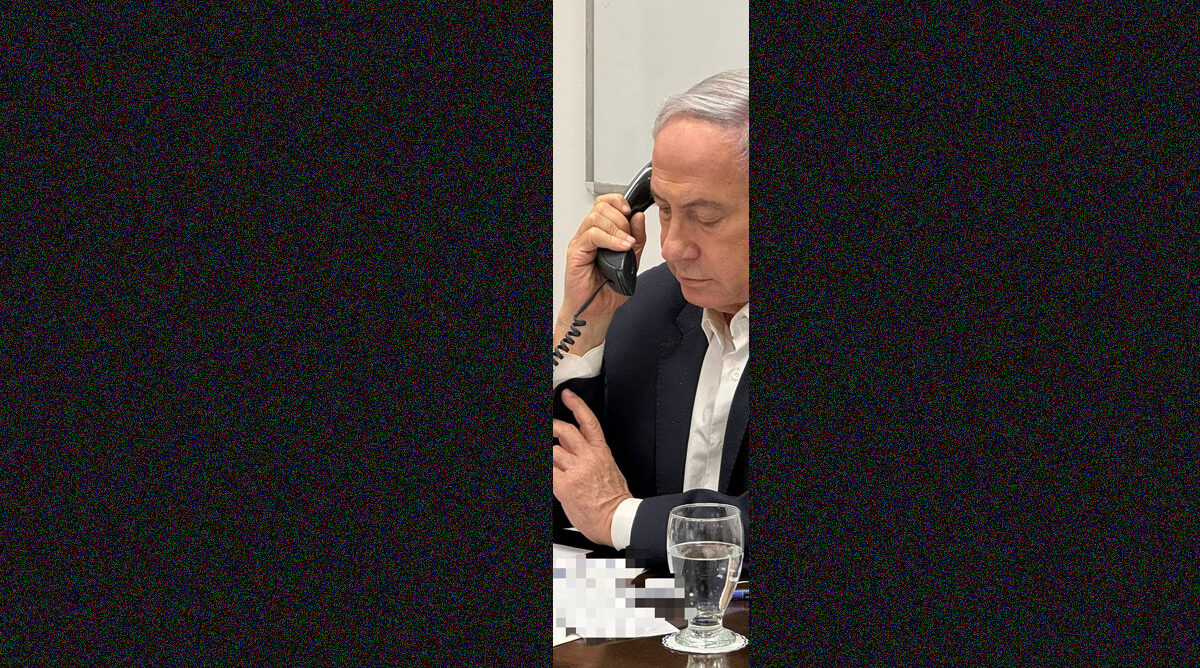On the night of March 31, 2024, before undergoing surgery, Prime Minister Benjamin Netanyahu held a press conference. The last so far. This was a rare event, as Netanyahu had been avoiding Israeli journalists for years, choosing instead to communicate with the public through foreign media and his social media channels.
Today, June 6, 2024, marks 66 days since that press conference. In these two months, numerous dramatic events have unfolded, events that would typically prompt a democratic leader to answer journalists' questions. These include a first ever Iranian missile attack, a historic downgrade in Israel's credit rating, increasing recognition of a Palestinian state by european states, the threat of arrest warrants from the International Criminal Court in The Hague, and the revelation of a significant government corruption case.
Despite Israel being in a state of war, which usually requires regular press briefings, Netanyahu has chosen to communicate only in pre-recorded statments, avoiding direct engagement with local media.
In the past two months, Netanyahu has resorted to delivering monologues to the media, similar to his approach in the initial weeks following the October 7 massacre. He has issued 51 messages to reporters, 26 of which included video statements, avoiding the interactive nature of press conferences.
Netanyahu has always been reluctant to face Israeli reporters, preferring to deliver statements without answering questions. it took three weeks from the start of the Gaza war untill He was compelled to hold a first press conference after significant pressure. It was similar to the scenario during the COVID-19 crisis when he avoided press scrutiny.
On October 7, 2023, a major failure in Israeli history occurred when 3,000 Hamas militants invaded from Gaza, killing over 1,200 civilians and soldiers. Five days later, The Seventh Eye reported that Israeli news channels were again allowing Netanyahu to avoid questions, prompting an appeal from The Union of Journalists in Israel demanding regular press conferences.
Under pressure, Netanyahu held his first press conference since the massacre, though not all media outlets were allowed to ask questions. After more closed statements, further criticism led to more frequent press conferences from November 11, 2023, onwards. However, Netanyahu often expressed frustration with reporters' questions and attacked the media.
Netanyahu understands that Israeli journalists, familiar with his tactics and history, can challenge him effectively. To avoid this, he has turned to foreign media for interviews. last week, he gave his 25th interview abroad since the massacre, a 32-minute interview with the French-language TF1 network. a day after, his 26th interview was broadcasted on Sirius XM satellite radio, with Morgan Ortagus, a former Trump administration spokesperson.
Most of Netanyahu's foreign interviews are with journalists who support his views, making them more like public relations exercises. However, in rare instances when he faces challenging questions, such as in an interview with CNN's Jake Tapper, he has been forced to defend his boycott of Israeli media. in respomse, Netanyahu falsely claimed that his limited press conferences were akin to full press interviews, omitting that they were conducted under pressure.
The Israeli press and television channels have largely conceded to Netanyahu's avoidance of direct questioning, allowing his monologues to continue.
Two days ago, after The Seventh Eye has highlighted this issue, Israel's main journalist organization and chief editors of Israel's four TV news channels sent a letter to Netanyahu, urging him to end his boycott of the Israeli press, which has persisted since 2021, or at least resume the press conferences. His behavior, thay stated, "seriously harms the freedom of the press".
The motion is still unanswered.
Netanyahu's reliance on foreign media to avoid Israeli journalists is part of a broader strategy to promote his agenda. He resists any checks on his power, including from judges, senior officials, legal advisors, military and security leaders, and journalists who dare to question him.
This resistance is not a mere whim but a calculated move to undermine democratic norms and press freedom in Israel. An integral part of the judicial overhaul.









